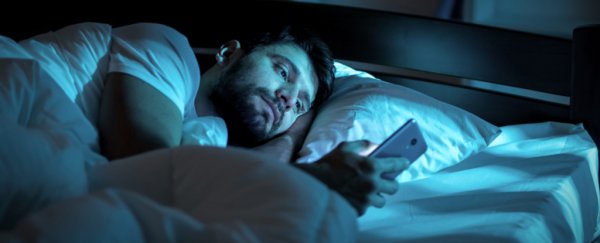A lack of sleep not only causes us to drop off at our desks in the afternoon and feel cranky, it also weakens crucial communications between the neurons in the brain, according to a new study.
That weakening in the brain's signalling network can lead to lapses in memory and problems concentrating, and in some ways is comparable to being drunk, say the researchers.
The international team behind the study wants to see the problem of sleep deprivation taken more seriously, both in the harm it can do to our own bodies and the risks that we might be taking when we get behind the wheel or do our daily jobs.
"We discovered that starving the body of sleep also robs neurons of the ability to function properly," says lead researcher Itzhak Fried, from the University of California at Los Angeles (UCLA). "This leads to cognitive lapses in how we perceive and react to the world around us."
Fried and his colleagues studied 12 patients preparing to have surgery for epilepsy, which meant their brains had already been fitted with electrodes to try and detect the locations of seizures before their operations.
Each volunteer was asked to categorise a series of images as quickly as possible, while the researchers measured the firing of the neurons inside the brain. In total, the activity of almost 1,500 brain cells was recorded across the 12 participants.
Particular attention was paid to the neurons in the temporal lobe, where visual perception and visual memory are managed.
The study found that as patients got more tired, the neuron firing activity slowed down and lost strength.
"We were fascinated to observe how sleep deprivation dampened brain cell activity," says one of the team, Yuval Nir from Tel Aviv University in Israel. "Unlike the usual rapid reaction, the neurons responded slowly and fired more weakly, and their transmissions dragged on longer than usual."
The scans suggested a lack of sleep was interfering with the neurons' ability to translate what was being seen into coherent thoughts, in the same way that a tired driver takes a moment to react to a pedestrian stepping out into the road.
Researchers also noticed sleep-like waves disrupting parts of the brain, almost as if certain areas were dozing off and causing mental lapses of concentration, while other sections of the brain carried on running as normal.
It's important to note that a sample size of 12 is a very small one, and we should be cautious about extrapolating these results across the broader population until we have more data to look at.
However, the link between tiredness and road traffic accidents is not a new one: it's estimated that hundreds of deaths and thousands of injuries in the US alone are caused each year by drivers dozing off at the wheel and not being able to react fast enough.
The new study gives us a detailed look at how that lack of sleep could be affecting the brain – at least in this sample of 12 people with epilepsy, doing this particular task.
And anyone who's ever pulled an all-nighter will know about how it can make it difficult to concentrate, and lead to a kind of brain fog. Apparently that's because your neurons have slowed right down.
The researchers say that in some ways, it's the same as being drunk at the wheel, as memory and decision-making is impaired – so perhaps we need the same rules for tired drivers as we have for drunk ones.
"Severe fatigue exerts a similar influence on the brain to drinking too much," says Fried. "Yet no legal or medical standards exist for identifying overtired drivers on the road the same way we target drunk drivers."
The research has been published in Nature Medicine.
The researchers also put together a video summarising the study, which you can see below:
